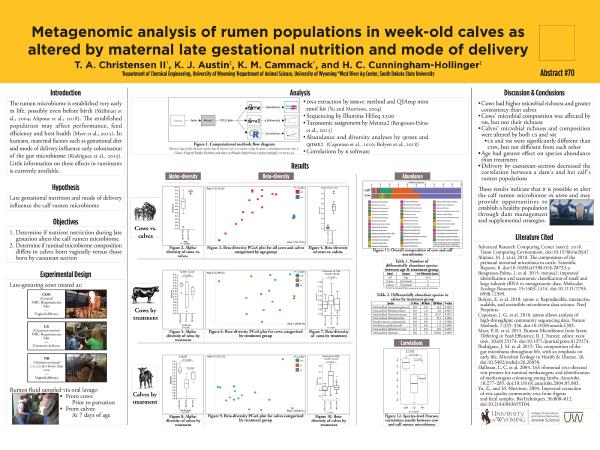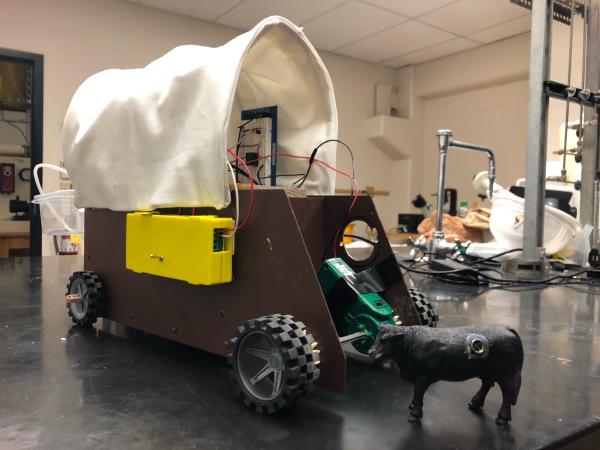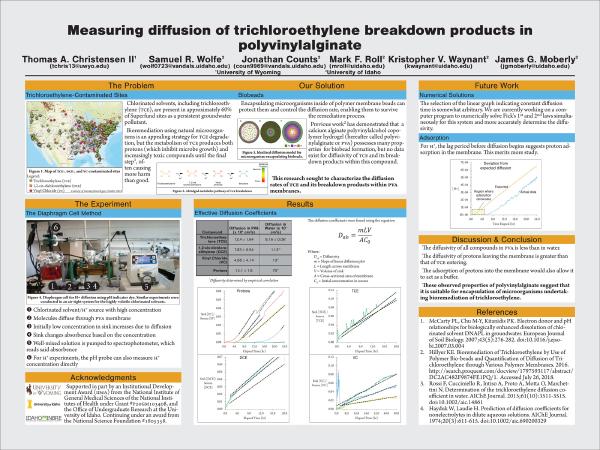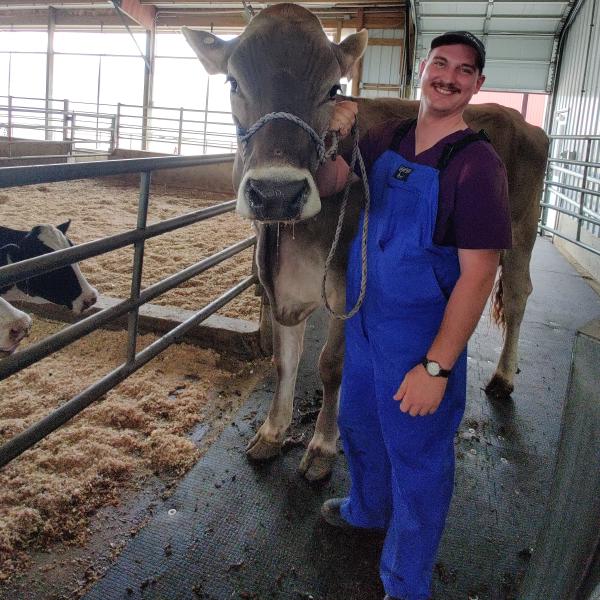Latest Activity
Subscribe
Early colonization of the rumen microbiome is critical to host health and long
term performance. Factors that influence early colonization include maternal
factors such as gestational nutrition and mode of delivery. Therefore, we
hypothesized that late gestational nutrition and mode of delivery would
influence the calf rumen microbiome. Our objectives were to determine if
nutrient restriction during late gestation alters the calf rumen microbiome and
determine if ruminal microbiome composition …

The ChemE Car That Cud showcases Wyoming’s dominant industries of agriculture
and mining by utilizing rumen fluid from a cannulated beef cow to generate
hydrogen to be used in a hydrogen fuel cell and radioactive cesium, a byproduct
of uranium that is often obtained from Wyoming’s mines, to time the car’s stop.
The concentration of cesium-137 source is measured using the radioactive decay
of cesium shielded by aluminum. The painted aluminum chassis was obtained from a
previous …

Trichloroethylene (TCE), a toxic and carcinogenic contaminant, presents unique
challenges for cleanup because of its water solubility, density, and volatility.
Bioremediation of TCE is a promising cleanup method; however, metabolism of TCE
results in acid generation that inhibits remediating microorganisms. Calcium
alginate(CA)-polyvinylalcohol (PVA) hydrogels show promise for protecting
remediating microbes, however diffusion of TCE or its byproducts through these
polymers is unknown. To …
Trichloroethylene (TCE) is a toxic and carcinogenic contaminant that presents
unique challenges for cleanup because of its density and volatility. Use of
microorganisms may be a promising remediation method, however metabolism of TCE
results in acid buildup, which consequently impedes the ability of
microorganisms to perform this remediation. Polyvinylalginate (PVA) shows
promise as a useful shield for microorganisms carrying out bioremediation of TCE
by surrounding them in a protective …
